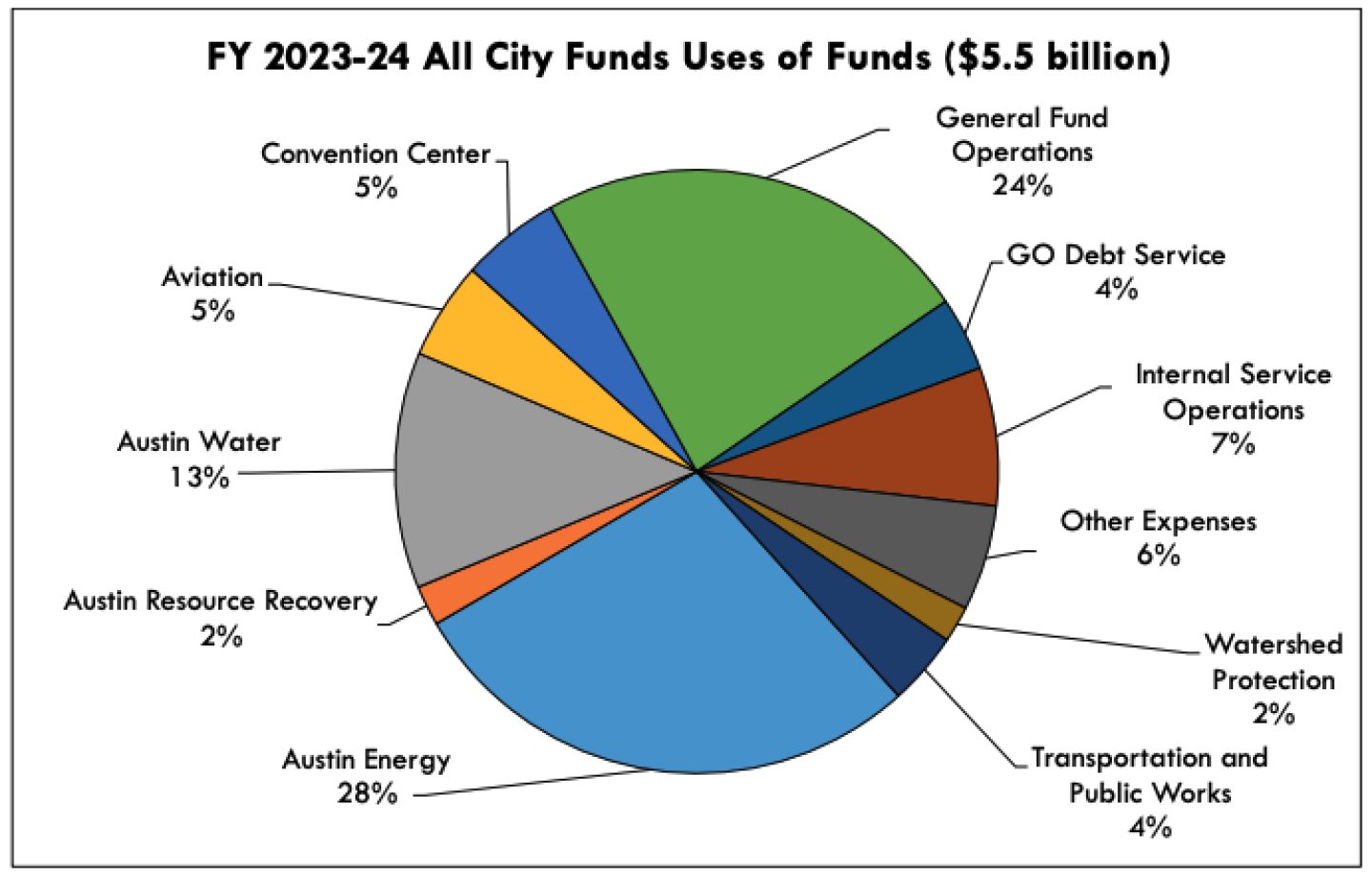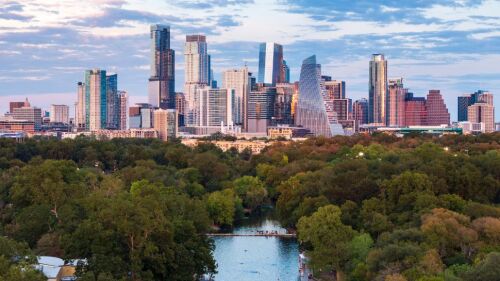Jesús Garza, the City of Austin’s interim city manager, recently proposed a $5.5 billion city budget for the 2023-2024 fiscal year.
The proposed budget is $500 million higher than last year’s and focuses on going “back to basics,” prioritizing “affordability, resiliency, quality of life, public safety, and ending homelessness.”
If this budget is passed, the average Austin homeowner is likely to see a ~1.5% increase in their tax bills, which equates to $2.16 per month or $25.91 per year.
Here’s what’s in the budget:
Two departments make up 41% of the city’s total budget — Austin Energy and Austin Water — taking 28% (~$1.54 billion) and 13% (~$715 million) respectively.
The city’s General Fund — which supports Austin Parks and Recreation, the Austin Public Library system, the Austin Police Department, Emergency Medical Services, and more — makes up 24% (or $1.3 billion) of the operational budget.
The remaining 35% of the budget is comprised of reserve, debt retirement, internal services, and other enterprise funds.
A new structure
Instead of the previous six outcome areas, which were used to inform the budget development process, the city budget will now center around seven new categories:
- Community Health and Resilience
- Economic & Workforce Development
- Equitable Service Delivery
- Homelessness & Housing
- Mobility & Critical Infrastructure
- Organizational Excellence
- Public Safety
These seven categories are expected to be fully integrated into the budgeting process for the 2024-2025 fiscal year.
Notable new investments
- $6.1 million in one-time funding to equip city facilities with generators in the event of a weather emergency.
- $5 million for the Housing Trust Fund to create a revolving fund to lower barriers of entry for affordable housing developments.
- $4 million to improve internal permitting and plan review processes, plus expedite proposed changes in the land development code.
- $2.7 million for enhanced security and cleanliness at parks, library branches, public health clinics, and the animal shelter.
- $2 million for overtime budget for the Austin Fire Department.
- $1.2 million for the full-year operation of the Southbridge Shelter.
- $1.2 million in one-time funding to conduct Phase D of a study evaluating racial prejudice and practice within APD.
- $1 million for Austin Energy to conduct a study regarding conversion of the overhead distribution system to underground.
- $600,000 in one-time funding to mitigate displacement of small businesses.
- $515,000 in one-time funding to implement the city’s branding initiative.
- $500,000 in one-time funding to conduct studies related to affordability.
- $210,000 in one-time funding for construction of shade structures at city parks.
Where does the money come from?
In short, everyday household bills and taxes. Water and electricity charges account for 42% (or $2.22 billion) of generated revenue, taxes make up 31% (or $1.64 billion), and the remaining revenue comes from fines, fees, permits, and service charges.
What’s next?
Austin City Council will ask the public for input several times before adopting the budget in August. City Council’s next budget meeting is at 10 a.m. on Wednesday, July 26 and will include a period for public comment.
Until then, you can read the full plan for yourself, read budget questions and answers, or review our breakdown of last year’s budget.














